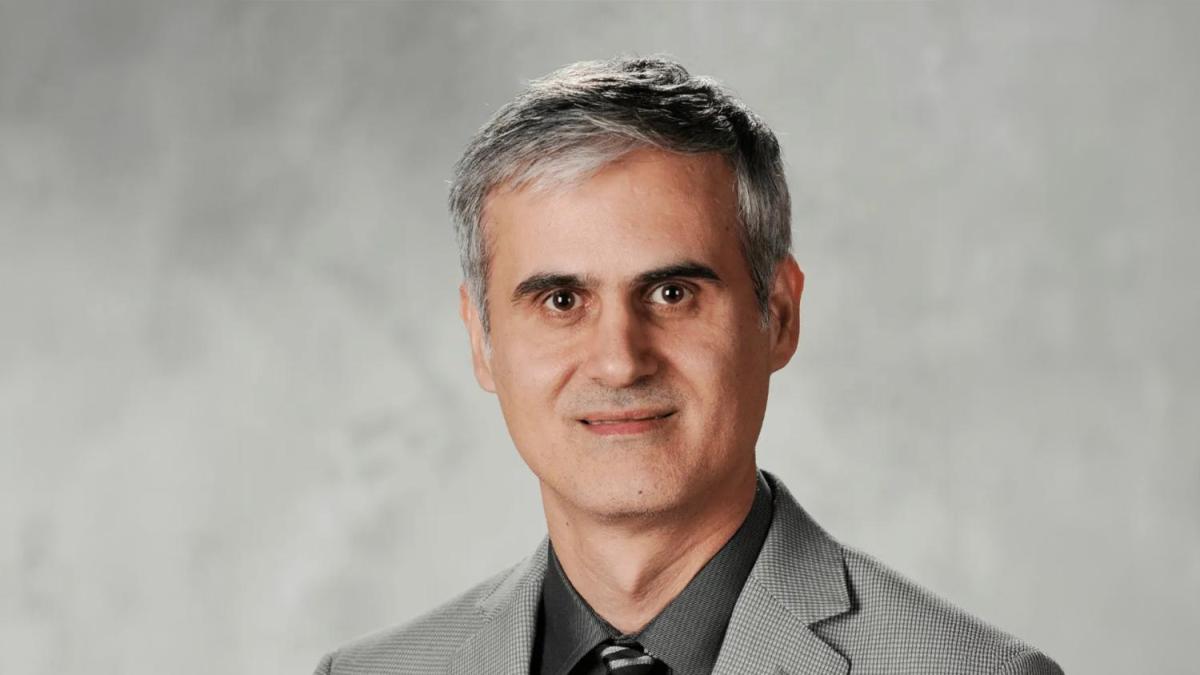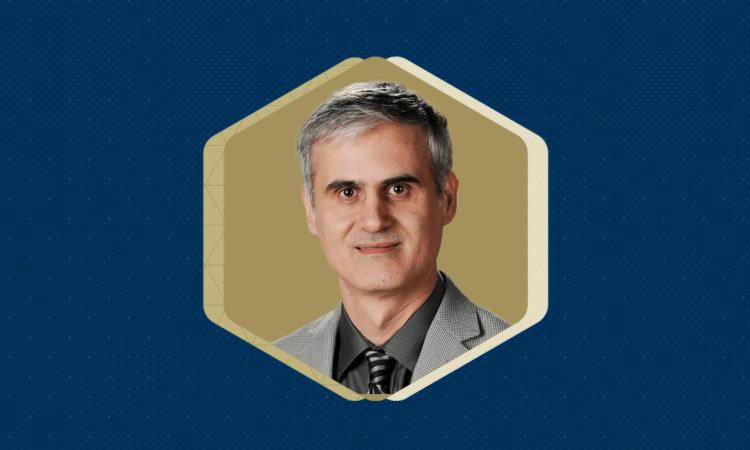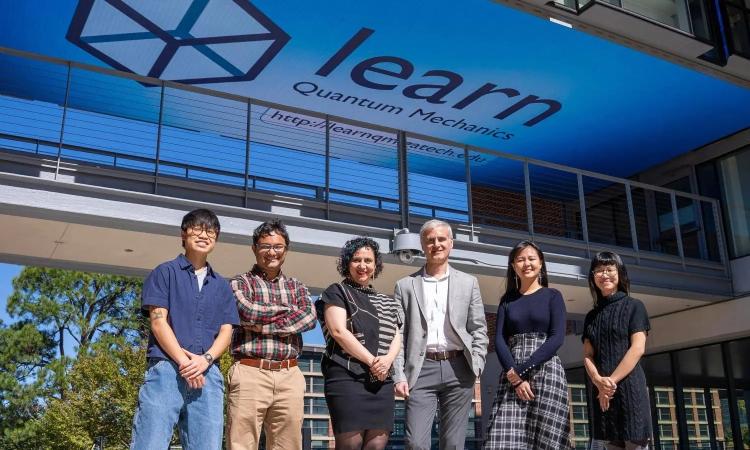The research provides important guidelines for the technology and circuit development needed to achieve a better memory technology.
(text and background only visible when logged in)

(text and background only visible when logged in)
Georgia Tech School of Electrical and Computer Engineering (ECE) professor Azad Naeemi received the Intel Outstanding Researcher Award for his research on ferroelectric capacitors.
The project, “Compact Physical Models and Circuit Design for Ferroelectric and Antiferroelectric Devices,” aims to enable new memory technology.
The award recognizes exceptional contributions made through Intel university-sponsored research that aligns with Intel’s mission of creating world-changing technology to improve daily life.
Ferroelectric capacitors represent a promising emerging memory technology thanks to their energy efficiency, nonvolatility, simplicity, and compatibility with the Complementary Metal-Oxide-Semiconductor fabrication process. These attributes have motivated researchers to pursue ferroelectric memories for a variety of applications, such as embedded memories, neuromorphic computing, and edge computing.
Naeemi and his team worked closely with collaborators at Intel to develop fast and accurate physical ferroelectric capacitor models to design and benchmark ferroelectric random-access memory (FeRAM) arrays and their peripheral circuitry.
This work provides important guidelines regarding the nature of the technology and circuit development needed to achieve a competitive memory technology, according to Naeemi.
Naeemi came to ECE as a graduate student after receiving his B.S. degree in electrical engineering from Sharif University, Tehran, Iran. He graduated with his M.S. degree and Ph.D. in electrical and computer engineering in 2001 and 2003, respectively.
He went on to work as a research engineer in the Microelectronics Research Center at Georgia Tech, before returning to ECE as a faculty member in 2008.
His research crosses the boundaries of materials, devices, circuits, and systems, investigating integrated circuits based on conventional and emerging nanoelectronic and spintronic devices and interconnects.
Naeemi’s work has previously received many awards, including the IEEE Electron Devices Society Paul Rappaport Award, IEEE Solid-State Circuits Society James D. Meindl Innovators Award, and the NSF CAREER Award.
This is the second year in a row an ECE faculty member has received the Outstanding Researcher Award, with Professor Shimeng Yu taking home the award in 2024 for a novel computing chip able to quantify uncertainty beyond the capabilities of this binary system.
(text and background only visible when logged in)
Related Content
Naeemi Named Dean’s Professor
The ECE professor was named to the five-year appointment for outstanding scholarship, dedication to education, and excellence in service at Institutional, national, international levels.
“Game”-changing Visual Tools Help Students Grasp Quantum Concepts
Backed by the National Science Foundation, the project uses computer games and visualizations to help students understand the often challenging topics of semiconductor and microelectronic physics.

